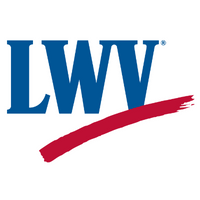Transportation
Position in Brief
Promote energy-efficient and environmentally sound transportation systems that afford access to housing and jobs, relieve congestion, and enhance the quality of life in communities of all sizes. Support predictable public funding that enables fiscally stable transportation systems to provide consistent levels of service.
Background
LWVPA has been acting on transportation since 1971 based on national environmental quality and urban policy positions. In 1980 LWVUS decided to consolidate these positions to put greater emphasis on mass transportation systems. The new position was incorporated into the LWVUS position on Meeting Basic Human needs (see Impact on Issues, 2020-22).
The LWVUS believes that energy-efficient and environmentally sound transportation systems should afford better access to housing and jobs and will continue to examine transportation policies in light of these goals.
Under this position, LWVPA has supported:
Opening the national highway trust fund to permit the transfer of funds for public transportation alternatives.
Increase in state gasoline taxes.
Reorganization of the Pennsylvania Department of Transportation (PennDOT).
The end of overweight trucks.
A moratorium on new highway building.
A re-emphasis on public transportation.
Maintaining passenger train service in Pennsylvania.
Meeting the needs of the handicapped for accessible transportation.
Comprehensive planning of proposed turnpike construction, including requirements for environmental impact statements, and public participation.
Automobile emissions inspection programs.
A proposed constitutional amendment to allow motor fuel taxes to be used for public transit purposes.
Reorganization of the Southeastern Pennsylvania Transportation Authority (SEPTA) board.
A recommendation to the U.S. Department of Transportation to reverse its historical priority of highway funding at the expense of public transit.
With the 1991 passage of the Intermodal Surface Transportation Efficiency Act (ISTEA), some recognition was given by Congress to the importance of public transit to the economic well-being of urban areas. In 1991, the General Assembly made dedicated funding available to PA transit systems, a long- time goal of the Area Coalition for Transportation (ACT) and LWVPA.
In 2006 a state Transportation Funding and Reform Commission, formed by the governor, made recommendations for funding Pennsylvania’s transit infrastructure including mass transit. The recommendations included raising certain fees and taxes. Instead, the governor proposed leasing the Pennsylvania Turnpike to a private company to raise the needed money.
Rejecting both proposals, the legislature passed, and the governor signed into law, Act 44 of 2007 to make Interstate 80 a toll road. The Act provides millions of dollars in state spending for roads, bridges, and mass transit over the next ten years. The lease of the PA Turnpike was rejected by the applicant (an overseas consortium). Any lease contract would have been for a term of 50 years in order to project a profit to the private owners.
Although the tolling of I-80 has been rejected by the US Department of Transportation, the Turnpike Commission has already given millions of dollars to support public transit. This infusion of money has made possible the elimination of much higher consumer costs in public transit. The proposal is still under consideration.
Realizing that LWVPA did not have a position that could be applied to proposals to privatize transportation systems, delegates to the 2011 LWVPA adopted the following study:
Study privatization of transportation infrastructure and other state assets in PA. The study should be done in conjunction with the LWVUS study: “Privatization: the policy agenda to transfer government functions, services and assets to the private sector.”
Updated February 2012

